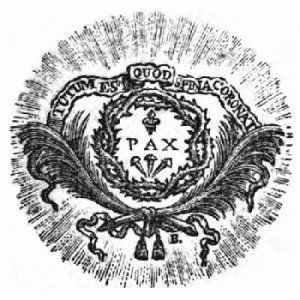 There is a tendency to think of the Catholic Church in political terms (liberal or conservative) and not in theological terms (communio, salvation, proclamation of the kingdom, sacraments, discernment, etc). I think some of the those who use political terms to describe the Church do so neither know the distinctions that need to be made nor the horizons of the gospel and magisterium of the Church. The Church is asking for the Good News, not personal news. Indeed, the human heart not ideology is what the Catholic Church (and the Orthodox Church) are aiming to serve. Conversion to Jesus Christ is hardly a liberal or conservative set of ideas.
There is a tendency to think of the Catholic Church in political terms (liberal or conservative) and not in theological terms (communio, salvation, proclamation of the kingdom, sacraments, discernment, etc). I think some of the those who use political terms to describe the Church do so neither know the distinctions that need to be made nor the horizons of the gospel and magisterium of the Church. The Church is asking for the Good News, not personal news. Indeed, the human heart not ideology is what the Catholic Church (and the Orthodox Church) are aiming to serve. Conversion to Jesus Christ is hardly a liberal or conservative set of ideas.
Having said this, I think it is fair to point out that some segments of the papacy over time have treated the Church as a political pawn in the game of chess. They have do so to the detriment of the pursuit of salvation in Christ Jesus. We do notice how a pendulum swings in certain ecclesial administrations, corrective or not. As a friend points out, one only has to study the periods surrounding Popes Gregory XVI and Pius IX. He notes, “This plague of obscurantism was followed by the more enlightened reign of Leo XIII.”
What ought the laity and lower clergy hope for —discern—in the episcopal and cardinal appointments? Certainly not more of the same. The binary of left-right is inaccurate not matter if it is fitting secular manner of judgement. I think it is fair to say that too many journalists like some of the those working for big media centers do the world a disfavor by obscuring the issues in pointing out silly comparisons and contrasts in the hierarchy such as clothes and fine living (cf. Burke and Wuerl). Each churchman brings to the table certain level of sophistication and expertise.
We need, we desire, a church and therefore for all the leaders: a capacity to preach, to offer the sacred Liturgy with the transcendentals in mind, who are able to read literature other than canon law, morality and speculative theology, who are able to consult with a wide range of people and experience (discernment), who are not afraid of women (and men), who are able to enjoy the creative works of a museum and a symphony, etc. Get my drift?
The Catholic Church needs real men (and where able, women) who have a real humanity and not a reductionistic view of creation. Holy Church wants in her leadership a Trinitarian vision with a recognition of paternity, filiation, spiration, procession and mission. We are all tired of the status quo of the psycho-sexual, anti-intellectual, economic and theologically weak types. These problems are encountered not merely in the secular clergy and religious (Benedictines, Jesuits, Salesians, Dominicans and Franciscans) but also in the laity.
May all things be done so that God may be glorified!
